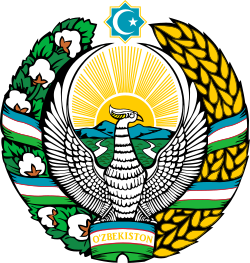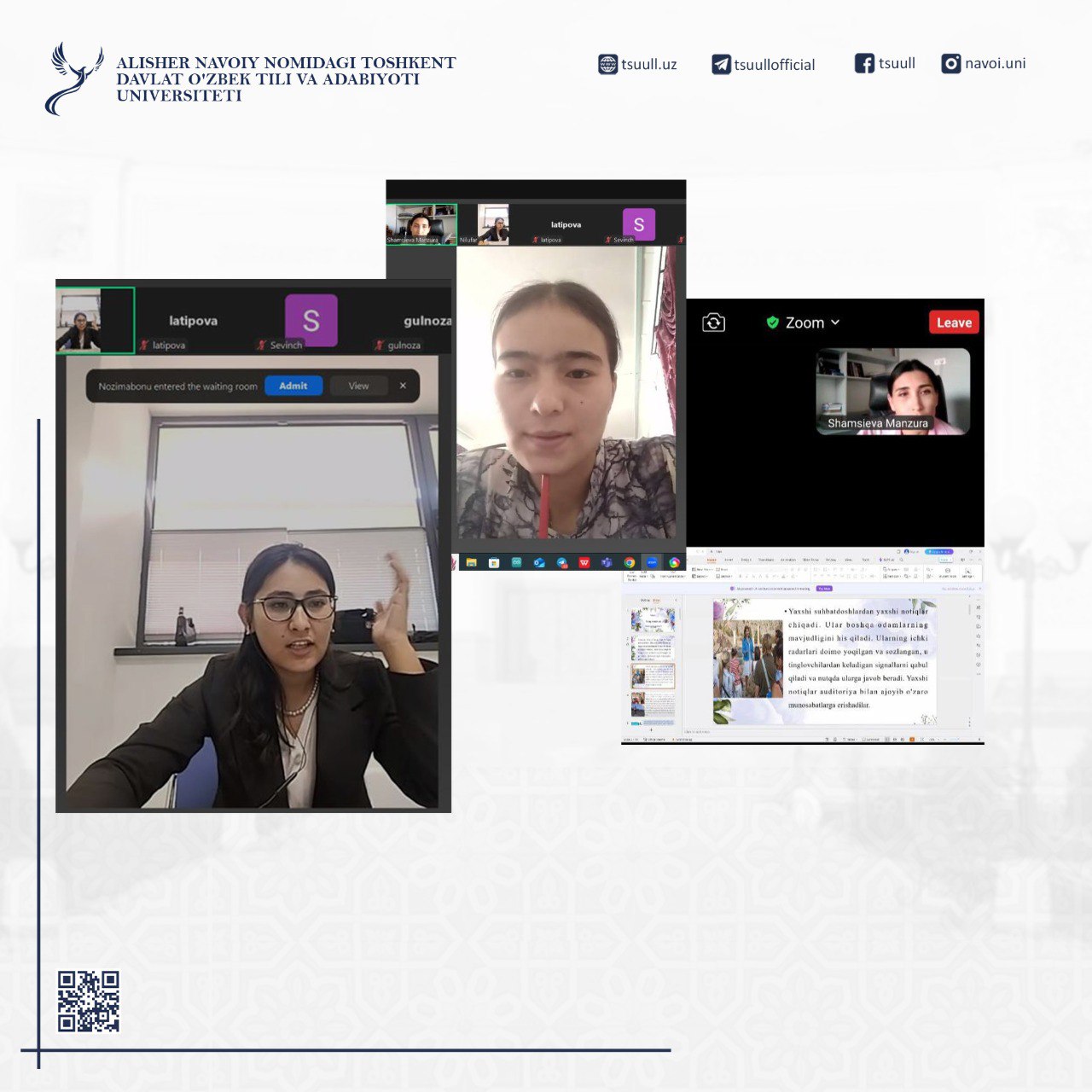
A Psycholinguistic Training on “Speech Technique and Culture” Held at TSUUL
Within the framework of the “90 Days of Relevance” program, the Department of Uzbek Linguistics organized an extensive psycholinguistic training entitled “Speech Technique and Culture.” The event, conducted via Zoom, was designed to enhance students’ oratory culture and technical skills, to better prepare them for future philological practice, and to strengthen their applied competencies.
The session brought together third-year students from the Faculty of Theory and Practice of Translation and the Faculty of Philology. Alongside theoretical insights, participants explored practical methods applicable to real communicative situations.
The training provided a detailed overview of the hallmarks of effective public speaking: techniques of persuasion, principles of argumentation, strategies for establishing and maintaining psychological rapport with the audience, and methods of sustaining attention over time. In the context of speech culture, special attention was given to etiquette in communication, developing topics coherently, managing Q&A effectively, and making conversations both engaging and meaningful.
The practical component focused on students’ speech performance, working on sentence structure, logical coherence, fluency of expression, use of intonation and pauses, and adjusting speech tempo in response to audience reactions. Students also received recommendations on how to conclude speeches with concise takeaways, adapt content to audience needs, and enliven their presentations with examples and mini-scenarios.
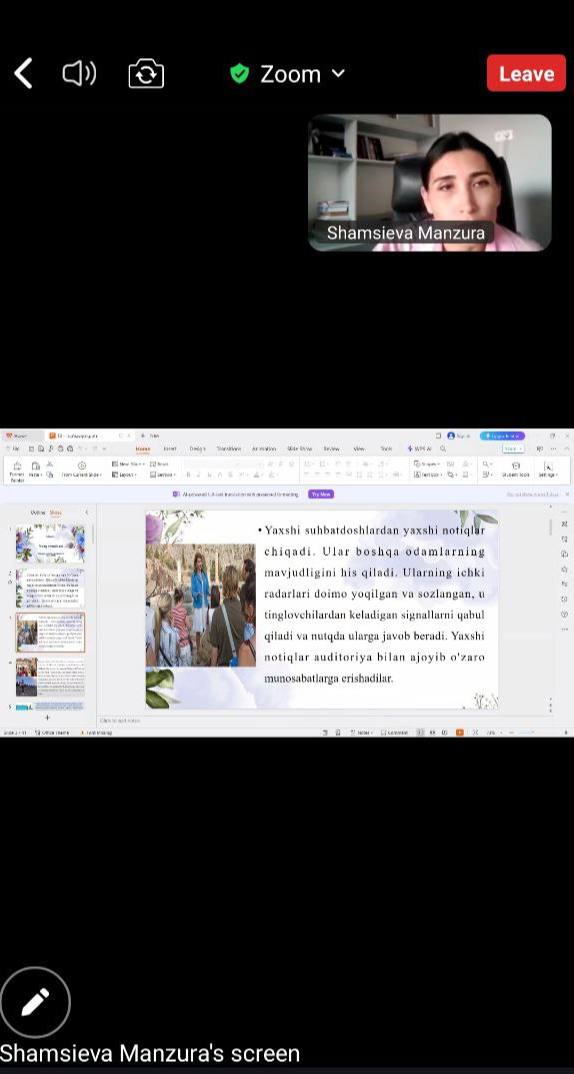
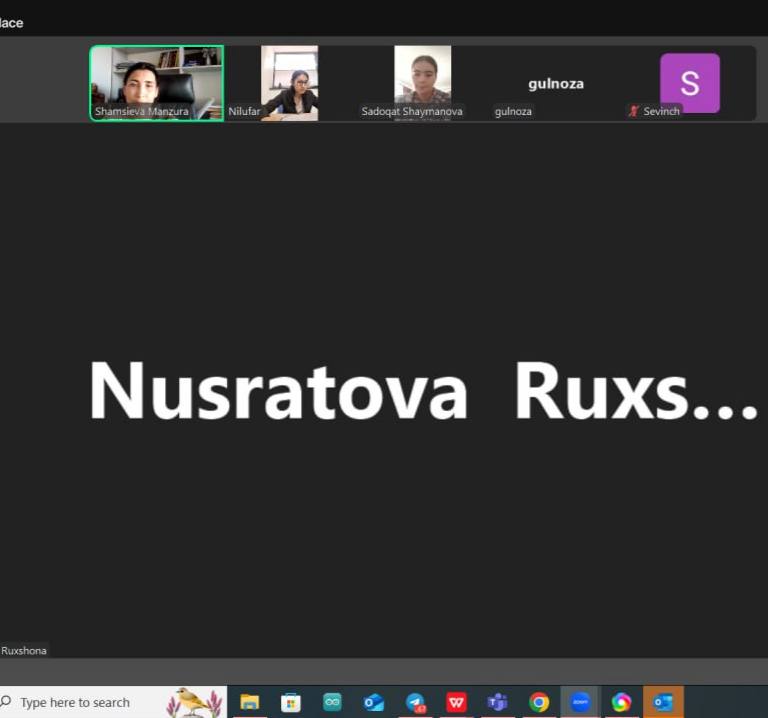
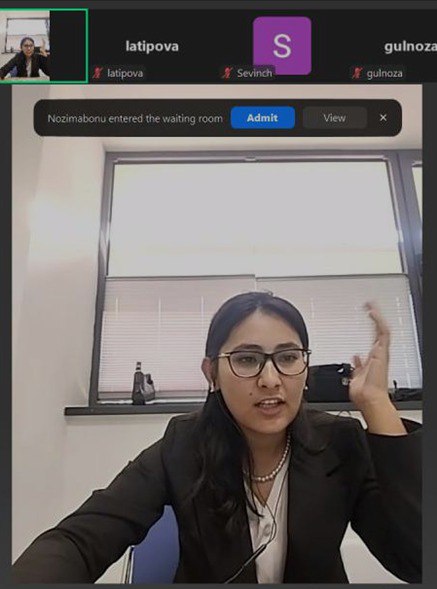
Held in an interactive atmosphere, the training encouraged participants to analyze their own speech, experiment with techniques of attention management, and practice persuasive strategies through situational exercises. Beyond educational objectives, the session emphasized self-confidence, stage presence, and freedom in public speaking.
The workshop sparked keen interest among students and concluded with active participation and lively exchanges of ideas. Its outcomes marked a significant step in improving students’ speech culture and fostering the communicative competencies essential for their future philological and professional endeavors.


